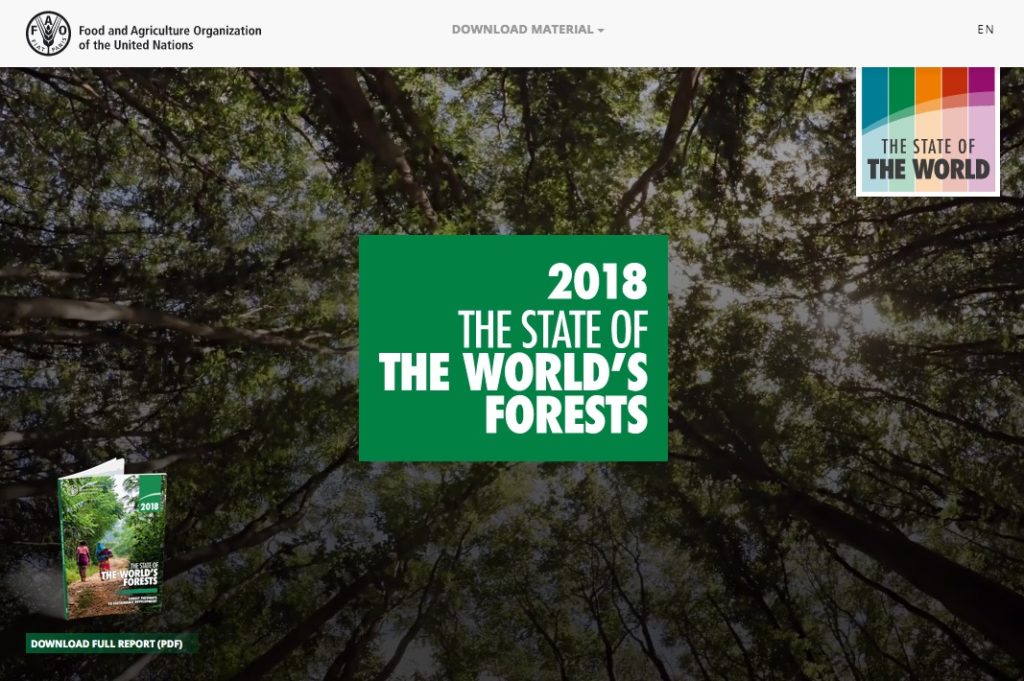
8 Jul, 2018
Forests ‘essential’ for the future, UN agriculture chief spells out in new report
United Nations, (UN News Centre) 6 July 2018 — Time is running out for the world’s forests, warns a new report by the United Nations agriculture agency, urging governments to foster an all-inclusive approach to benefit both trees and those who rely on them.

Halting deforestation, managing forests sustainably, restoring degraded forests and adding to worldwide tree cover all require actions to avoid potentially damaging consequences for the planet and its people, according to the State of the World’s Forests 2018, referred to as SOFO 2018.
Forests and trees contribute more to human livelihoods than most people know – playing crucial roles in food security, drinking water, renewable energy and rural economies.
Moreover, they provide income for some 20 per cent of rural households in developing countries as well as cooking and heating fuel for one-in-three people globally.
“Forests are critical to livelihoods” said José Graziano da Silva, Director-General of the Food and Agriculture Organization (FAO).
“Healthy and productive forests are essential to sustainable agriculture and we have proof of the significance of forests and trees for the quality of water, for contributing to the energy needs of the future, and for designing sustainable, healthy cities,” he added.
This year’s report documents the importance of forests for the 2030 Agenda – ranging from tackling climate change to conserving biodiversity, reducing inequalities and improving urban habitats.
“Trees and forests contribute to achieving multiple targets across the 2030 Agenda and need to be incorporated into strategies to achieve the Sustainable Development Goals,” said Eva Mueller, FAO Forestry Director.
This year’s report documents just how essential forests are for the Sustainable Development Goals (SDGs) – ranging from tackling climate change to assuring drinking water and improving urban habitats.
SOFO 2018 emphasizes the importance of clear legal frameworks on forest tenure rights; applauds the growing trend in local governance; and calls for effective partnerships to pursue sustainable goals.
Given that deforestation is the second leading cause of climate change, the report calls corporate responsibility for zero deforestation “key.”



Liked this article? Share it!